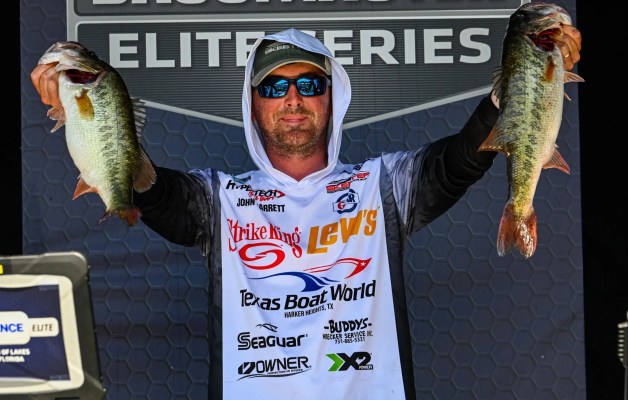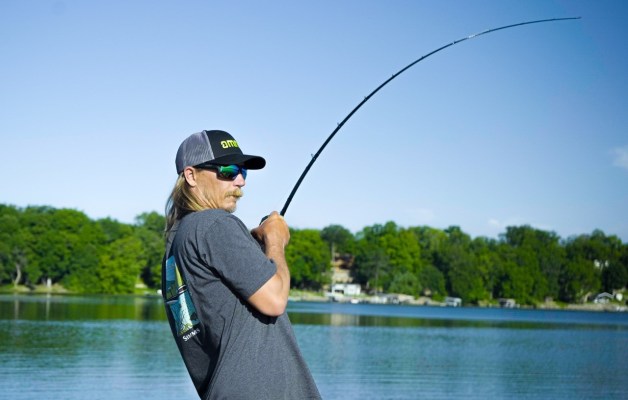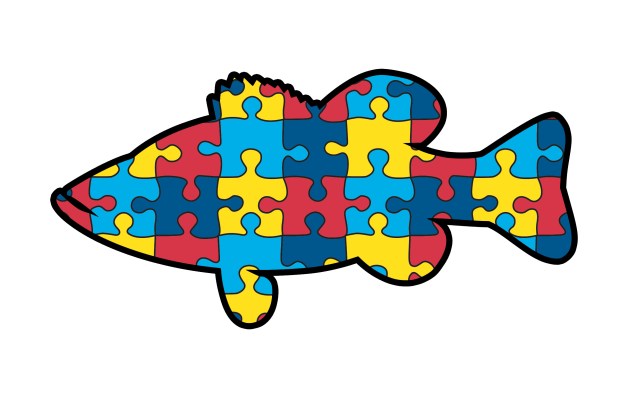Ray Scott: Bassmaster Legends
Born: August 24, 1933
Ray Wilson Scott, Jr. did not invent bass fishing, but for millions of avid anglers all around the world, he might as well have.
Scott was a Montgomery, Ala., insurance salesman on a business trip to Jackson, Miss., on March 11, 1967, when the idea for professional bass fishing hit him. He was watching a basketball game in his motel room when he started to wonder why competitive fishing wasn't on television along with baseball, basketball, football, tennis, golf, auto racing and the like.
"In a microsecond I saw it all," Scott recalled in his biography, Bass Boss. "I saw a hundred bass fishermen competing, tournament-style. It just came to me. I knew it would work."
Later that year Scott conducted the first modern bass tournament, the All-American on Arkansas' Beaver Lake, June 5-7, 1967. A year after that, Scott created the Bass Anglers Sportsman Society, now the largest fishing organization in the world with more than half a million members.
That he founded BASS and created the modern tournament format would have been more than enough to cement Scott's place in fishing history, but he was just getting started.
In the early 1970s, Scott and other BASS pioneers formed the BASS Chapter Federation, a group of BASS-affiliated clubs across the country and even the world. Today, the Federation Nation covers 47 states and six foreign countries with more than 20,000 members. These anglers are the grass roots of BASS and have been instrumental in effecting positive change through legislation, activism and local conservation and youth projects.
In 1972, Scott brought catch-and-release to bass tournaments with his "Don't Kill Your Catch" program. Today, more than 98 percent of all bass caught in BASS events are released alive. More importantly, the ethic has caught on nationwide and around the world. Because of Scott's vision for the sport, bass are now viewed as a renewable resource.
In the mid 1970s, Scott and BASS began working for the passage of the Sport Fishing Restoration Act, also known as Wallop-Breaux. Signed into law by President Ronald Reagan in 1984, the act established a federal excise tax on fishing and boating equipment with the proceeds being dedicated to state fisheries agencies and used for restoration and access programs.
In 1986, Scott sold BASS to a group of investors, but he has continued to serve as a spokesman and ambassador for the organization. His tireless devotion to sportfishing, conservation, youth and the multibillion dollar industry he helped to create serves as an inspiration to all who know him.
After nearly 40 years as one of the primary catalysts in the fishing industry, Scott counts presidents, governors, movie and television stars and untold numbers of anglers as his friends.
Apart from his induction into numerous fishing and sporting halls of fame, Scott has been named one of the 20 greatest outdoor Americans of the 20th century. There's no doubt that he's been the most influential person in the world of bass and bass fishing.
Don Butler: Bassmaster Memorial
Born: July 23, 1930
Died: December 7, 2004
If BASS ever had a guardian angel, his name was Don Butler.
Butler's support of BASS and bass fishing was second to none. When Ray Scott was forming the organization in the late 1960s, Butler was the first to join, giving Scott a $100 bill so that he could be a life member.
Butler owned a Tulsa, Okla., lumber company and was a key advisor to Scott in the earliest days of BASS. When Scott was short of funds to send BASS membership applications to fishermen, it was Butler who saved the day.
"I tried borrowing money to buy the stamps I needed, but I had no collateral," Scott recalls. "The post office wouldn't lend me the stamps, either. One afternoon, Don Butler called and asked how things were going. I told him the whole story. The next day, I got a call from a Western Union office saying that a money wire was waiting for me. I assumed it was a fisherman's entry fee. Instead it was $10,000. The only clue I had about who sent it was that it was from Tulsa, Okla., Don Butler's hometown. About three weeks later, I was able to repay him."
Like Johnny Morris (Bass Pro Shops), Tom Mann (Mann's Bait Company and Humminbird Electronics), Bill Dance ("Bill Dance Outdoors") and Roland Martin ("Fishing with Roland Martin"), Butler benefited from the halcyon days of bass fishing. He formed his own lure company (Okiebug) and tackle distributorship. He was a fishing innovator and designed the first aeration system for a bass boat, making catch and release a viable option for millions of anglers.
Apart from being a supporter of BASS and bass conservation, Butler was also a fine fisherman. In 1972, he won the Bassmaster Classic in dramatic fashion. After falling behind by nearly 13 pounds on the first day, Butler bounced back and took the lead on Day 2. By the time the three-day event was over, Butler had used his Small Okiebug spinnerbait to easily outpace the rest of the field. His 13-pound, 7-ounce margin of victory is the second largest in Classic history.
The next season, Butler won the Arkansas Invitational on Beaver Lake. He effectively retired from tournament fishing after the 1975 BASS season. In 26 career BASS events, Butler finished in the money an impressive 17 times. In addition to his two wins, he had eight top-10 finishes.
Butler died in December of 2004 after a long battle with cancer. He was 74 years old.
Bryan Kerchal: Bassmaster American
Born: March 11, 1971
Died: December 13, 1994
Four years to the day after BASS founder Ray Scott came up with the idea of professional bass fishing and the Bass Anglers Sportsman Society, Bryan Victor Kerchal was born.
Kerchal is best known as the only Federation Nation angler to win the prestigious Bassmaster Classic, claiming the championship in 1994. He is also one of few anglers to qualify for the Classic from the ranks of the Federation Nation in consecutive years. Kerchal, a short order cook in Newtown, Conn., earning $150 a week, finished last in 1993, prompting BASS founder Ray Scott to tell a packed auditorium that if his fishing didn't improve, he'd wind up back home flipping burgers.
Instead, Kerchal rebounded with a vengeance, qualifying through the Federation Nation for the 1994 Classic on North Carolina's High Rock Lake, and then winning it — edging Tommy Biffle by just four ounces in one of the closest Classics in history.
His new fame put pressures on the young angler. In addition to the hectic schedule of a professional fisherman, Kerchal had the added burden of a Classic champ's speaking engagements and personal appearance itinerary.
On December 13, 1994, less than five months after winning the Classic, Kerchal was attending a sponsor function in Greensboro, N.C., When it was over, he made his way to the Greensboro Airport to catch American Eagle Flight 3379, a small plane bound for Raleigh-Durham just 70 miles away. From there, he was scheduled to fly to New York where his fiancée would drive him to Connecticut, where he lived with his parents. Kerchal was afraid of flying, but his new lifestyle left him little alternative.
Just before the plane reached the Raleigh-Durham airport, the control panel indicated that one of the engines had failed. While the pilot was trying to determine which engine was out, the plane stalled and crashed just four miles from its destination, killing 15 of the 20 persons onboard, including the reigning Classic champion. He was 23 years old.
After Kerchal's untimely death, his family and friends established the Bryan V. Kerchal Memorial Fund. His legacy lives on through the Fund's promotion of fishing activities for young people. Since its inception, the Fund has provided assistance to youth programs from Connecticut to California.
Bryan's Fishing Camp opened in Connecticut in the summer of 1998. Children between 7 and 15 years of age can attend free of charge and learn fishing techniques, natural resource protection and the joys of fishing and nature.
For Kerchal, fishing was a way of escaping the pressures and stresses of everyday life.
He wrote this poem about himself:
The reason I go fishin' all by myself
Is to sort out my problems.
Put them up on the shelf …
Sometimes I just sit there
I sit there and cry
Sometimes I sit there
And let time pass me by.
Today, both the Federation Nation Championship trophy and the Bassmaster American trophy bear Kerchal's name.




